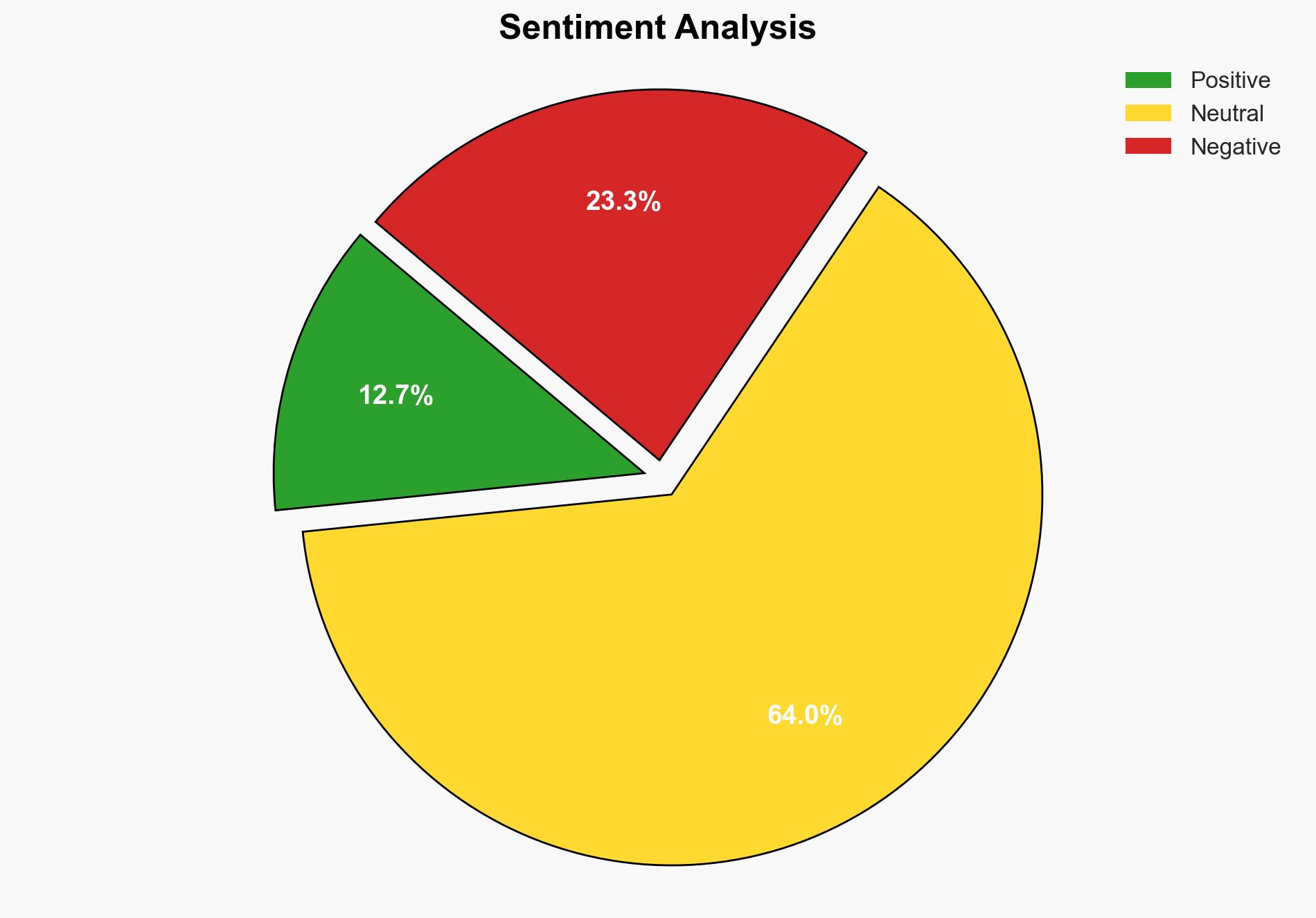UN official accuses Israel of weaponising aid to Gaza – BBC News
Published on: 2025-03-10
Intelligence Report: UN official accuses Israel of weaponising aid to Gaza – BBC News
1. BLUF (Bottom Line Up Front)
The UN has accused Israel of weaponizing humanitarian aid by restricting electricity and water supplies to Gaza, potentially exacerbating the humanitarian crisis. This action has been condemned by various international actors, including the UK and Germany. The situation remains tense, with ongoing negotiations for a ceasefire extension between Israel and Hamas. Immediate attention is required to address the humanitarian needs and stabilize the region.
2. Detailed Analysis
The following structured analytic techniques have been applied for this analysis:
SWOT Analysis
Strengths: Israel’s strategic control over resources allows leverage in negotiations.
Weaknesses: International condemnation may weaken Israel’s diplomatic standing.
Opportunities: Ceasefire negotiations could lead to long-term peace agreements.
Threats: Escalation of humanitarian crisis could lead to increased regional instability.
Cross-Impact Matrix
Israel’s restriction of resources impacts Gaza’s humanitarian conditions, potentially influencing neighboring countries’ political stances and increasing regional tensions.
Scenario Generation
Best-case scenario: Successful ceasefire extension and resumption of aid lead to stabilization.
Worst-case scenario: Breakdown in negotiations results in renewed conflict and humanitarian disaster.
Most likely scenario: Continued negotiations with intermittent aid disruptions and regional tensions.
3. Implications and Strategic Risks
The restriction of aid to Gaza poses significant risks to regional stability and international relations. The humanitarian crisis could lead to increased migration pressures and radicalization. Economic interests in the region may suffer due to instability, impacting global markets. National security concerns arise from potential escalations in violence.
4. Recommendations and Outlook
Recommendations:
- Engage in diplomatic efforts to ensure the resumption of humanitarian aid to Gaza.
- Encourage international mediation to facilitate ceasefire negotiations.
- Implement monitoring mechanisms to ensure compliance with international humanitarian laws.
Outlook:
Best-case: A sustained ceasefire and international cooperation lead to improved humanitarian conditions and regional stability.
Worst-case: Prolonged conflict results in severe humanitarian and economic consequences.
Most likely: Ongoing negotiations with periodic disruptions, maintaining a fragile status quo.
5. Key Individuals and Entities
Philippe Lazzarini – Criticized Israel’s actions regarding aid to Gaza.
António Guterres – Expressed concern over the humanitarian impact in Gaza.
Eli Cohen – Commented on the strategic objectives of Israel’s actions.
Hamas – Engaged in ceasefire negotiations with Israel.
UNRWA – Involved in providing aid to Palestinian refugees.





